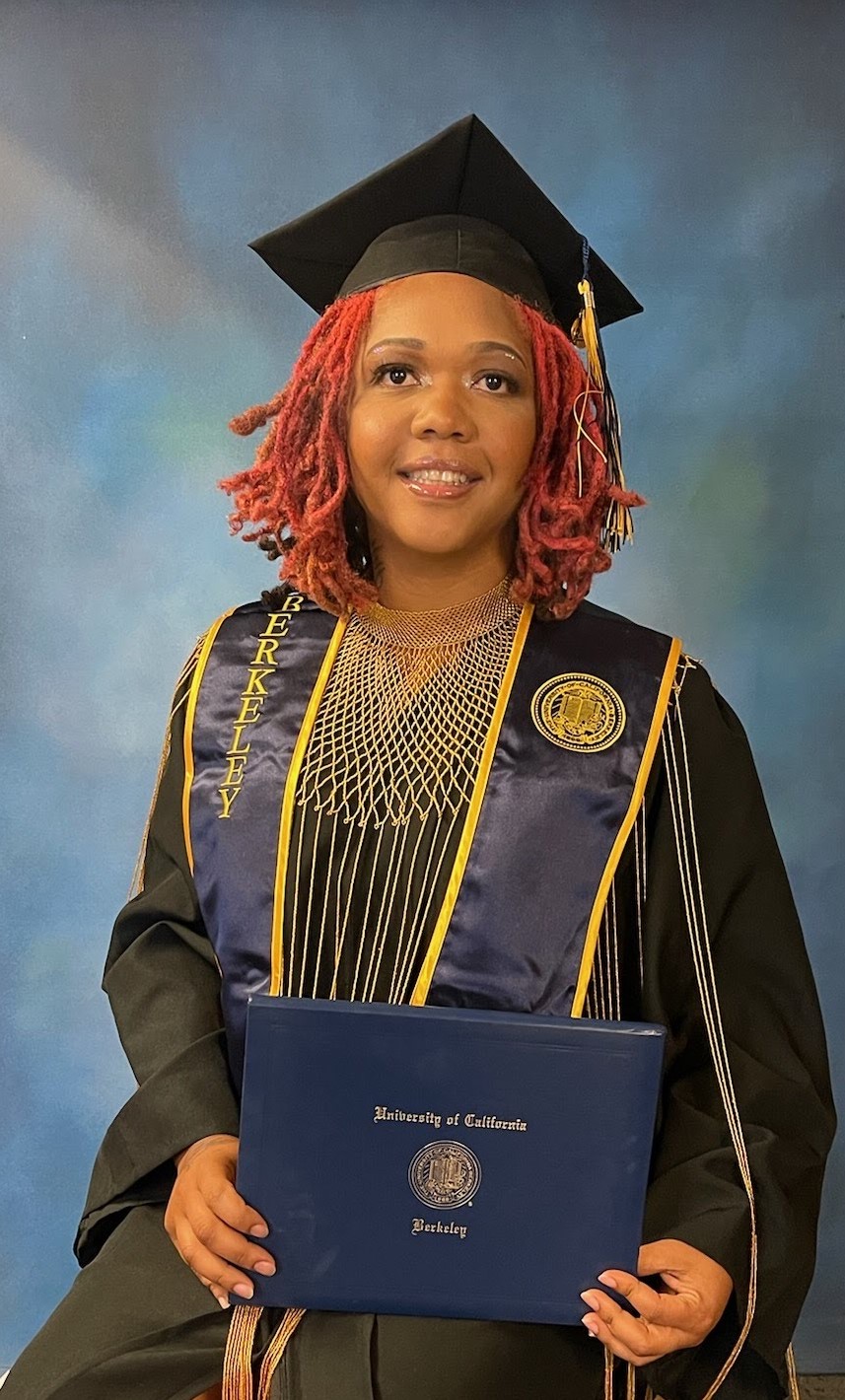When I tell people I’m an AmeriCorps alumna who’s working to open doors to higher education for incarcerated and formerly incarcerated youth, headed to Harvard graduate school in the fall, they make certain assumptions about my life up to this point.
When I tell them I was working as a stripper in San Francisco before I was 18 years old, inducted into a fraud ring, spent more nights in jail than I can count, and managed a bottomless well of emotional pain by cutting myself, they’re almost certain to make assumptions about how the rest of my life will play out.
The thing is, both stories of my life are true.
My name is Shani Shay. I am a 33-year-old Black woman whose very existence challenges assumptions about who can go to Harvard and what someone with early life trauma and incarceration can accomplish. I am originally from Hawaii, where I had a mostly sweet childhood playing in waterfalls and building sandcastles. When I was 15 years old, we moved to Berkeley, Calif. where I met and was in relationships with older, abusive men. By the time I was 28, I had a young daughter and knew I had to change my life and hers. I remember getting my first set of straight As as a community college student and thinking, “Wow, Shani, you are smart.” A year later I completely quit crime and left an abusive partner.
It was hard to make a clean break and walk towards a future I barely believed in. Sleeping on my mom’s pull-out couch every day with a growing child in tow was not easy, but with every passing week I had more faith in the future and more confidence in myself. Within two years, I was enrolled at UC Berkeley. It felt like a dream come true, especially with my past. Luckily, I had the support of Berkeley Underground Scholars, an organization started by formerly incarcerated and system-impacted UC Berkeley students. The organization also helped pave the way for me to work with young people with the same challenges as me. My encounters with them motivated me to create two programs: Incarceration to College for youth in custody, and then Pathways to College for formerly incarcerated youth. I built both programs from the ground up to work with students in custody. I work with them in the classroom and in continuation school to help alleviate any barriers to education, and ensure these students have equal access. Since their inception, I’ve encouraged hundreds of incarcerated and formerly incarcerated youths in Contra Costa, Alameda, and now San Francisco counties to set their sights on college.

Then I found California Justice Leaders, a first-of-its-kind AmeriCorps initiative created and operated by Impact Justice. The opportunity to join the organization as a California Justice Leader arrived at the right time in my life. During my service, I learned the complex systems and rules a young person has to navigate to avoid going back into custody and how to encourage and empower youths. I learned how to use tangible incentives as a catalyst for personal growth and connect people with resources and organizations that provide support and opportunities for them to succeed, one step at a time. My service with AmeriCorps helped me see how national service impacts youth who question their future after incarceration. I remember during my first visit with a jailed juvenile I learned that youths also can be jailed for long periods and re-enter society as adults. I saw first-hand how these youths need help and guidance to re-learn good behaviors and habits.
My experience with California Justice Leaders taught me the importance of rigorous case management, which is essential to running an organization that helps people with systems in place to do no harm. Using the tools at my disposal, I show mentees that I see them as human beings capable of greatness, not defined or limited by how long they served in prison. I’m always honest about the hardships I’ve experienced, my mistakes, and all that I’ve overcome so that I can motivate these youth.
By supporting people like me to be effective leaders, California Justice Leaders is changing the narrative about formerly incarcerated people, what we’re capable of accomplishing. It gives hope to all the young people trying to change their lives for the better. It also encourages people, institutions, and systems in a position to help. This motivation helped me earn my spot at Harvard and has helped to shape me for my future.
Find out more about national service opportunities for students and young adults for this summer.
About Impact Justice
Impact Justice is a national innovation and research center advancing cutting-edge solutions to longstanding drivers of injustice. California Justice Leaders is one of several programs operated by Impact Justice that provides meaningful opportunities for formerly incarcerated people to rejoin their communities and reach their potential.
Shani Shay graduated this spring with a bachelor's degree in African American Studies and a minor in education from the University of California at Berkeley and will attend Harvard’s Graduate School of Education in the fall. Shani is also the recipient of the 2019 California Women in Leadership Scholarship from the Minerva Institute, the 2019 Cal Alumni Leadership Award, and is a 2019 Firebaugh Scholar.



